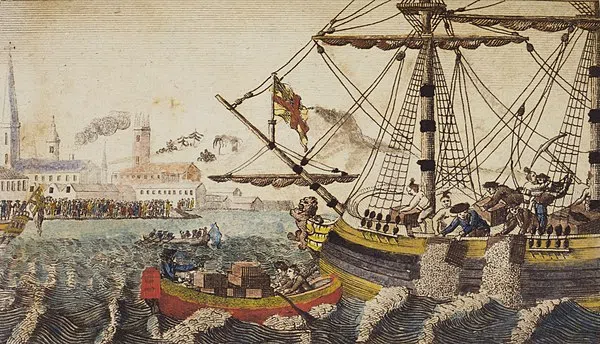On December 16, 1773, a group of American colonists, disguised as Native Americans, boarded three British ships in Boston Harbor and threw hundreds of chests of tea into the water. This bold act of defiance, known as the Boston Tea Party, was a protest against British taxation policies and the monopoly on tea held by the East India Company.
The colonists, primarily members of the Sons of Liberty, aimed to send a clear message to the British government: they would no longer accept taxation without representation. This event ignited a wave of patriotism and resistance throughout the colonies, ultimately contributing to the outbreak of the American Revolution in 1775.
The Boston Tea Party remains a celebrated and iconic moment in American history, symbolizing the struggle for freedom and democracy. It played a crucial role in paving the way for the creation of the United States of America as an independent nation.
What is Taxation without Representation?
Taxation without representation refers to the principle that citizens should not be taxed by a government unless they have a voice in its legislative process.
This concept became a rallying cry for American colonists in the 18th century, who were frustrated by British taxes imposed without their consent. They believed that true democracy requires that those who bear the burden of taxation should have representatives to advocate for their interests. This principle remains significant in discussions of civic rights and governance today.




Comments